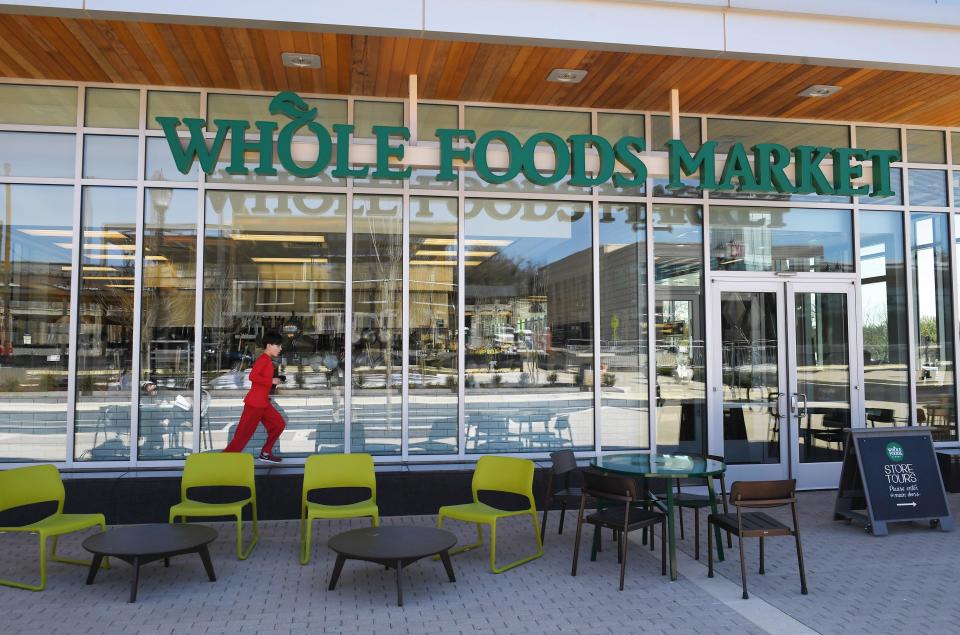Why The Whole Foods Buyout Could Signify An Upheaval of the American Grocery Store
In the great saga that is American retail, Amazon is by and far a disruptor – and we’ve seen the site that launched at the turn of the century as an online book retailer come full-circle with two brick-and-mortar bookstores in New York this year.
And the next space to be disrupted? Food shopping.
In what has been an expected move for some time now, Amazon announced this morning that it will add Whole Foods into its arsenal of consumer-centered properties for a whopping $13.7 billion. As part of the takeover, Whole Foods will remain in control of stores and the overall brand, with CEO John Mackey remaining at the helm of the grocery chain.
But how long will Whole Foods, and its more than 430 grocery stores scattered through cities and suburbs across America, remain unchanged?
As the mega-retailer has evolved, Amazon has often interrupted sectors of business in the name of progress that might harm its own profits – Echo and the ever-popular Alexa overtook Amazon’s Fire Phone almost immediately. Another prime example is Amazon’s rapid rise in the fashion retail space that eventually spawned into household items and eventually the perishables that you might purchase from them today, like this organic coffee.

Purchasing Whole Foods isn't Amazon’s first foray into business as a grocer; the e-commerce superstore launched its first grocery-store concept, Amazon Go, this January in Seattle. Shoppers can find fresh packaged meals – breakfast, lunch, and dinner, including Amazon Meal Kits, a product designed to take the wind out of other services like Blue Apron – as well as staple ingredients on the fly.
What makes this concept special, and particularly important when you think of the fact that the Whole Foods fleet is now at Jeff Bezos’ disposal?
The Amazon Go model is structured on a technological system where shoppers simply scan their smartphones when they walk into the retail space…and then simply walking out after taking what they need off shelves, says Fortune. This “just walk out” technology uses your smartphone to charge you for the items you take, directly to your Amazon.com account. It’s one of many initiatives that is changing the American retail landscape as we know it.
How many of you are already hooked on Amazon Prime, the $99-per-year membership that promises free two-day shipping for millions of products? That beloved feature is already evolving as we speak, with Prime Now (a one hour delivery service), a restaurant delivery proponent, free e-books, and access to ad-free streaming.
The more you buy through Prime, the more that Amazon is able to predict your shopping preferences – especially when it comes to household items and perishable food goods, given the rise of Amazon’s new Fresh delivery service earlier this year.
While it’s launch has been rocky, Bloomberg says the online grocery delivery and ordering service also promises a curbside pick-up service in the future, where customers can shop online and pay for their groceries in advance – just pulling up to a retail location to have their cars loaded.
In addition to Amazon Go and Fresh, 2017 has seen the rise of the eyebrow-raising Amazon Books stores, where you don’t even need to pick up the book to know how other Amazon users rate it via the website’s review system. Things you can pick up without even batting an eyelash include the Amazon Echo, Kindle, Fire TV, and Fire tablet – but it’s a rattling notion for Amazon, the 2.0 bookstore of our generation, to go from clicks to bricks once more.
Before Friday’s announcement was made, CNBC reports that stock prices for Amazon rose to nearly $1,100 a share given it’s apparent expansion into the food industry. Analysts are pointing to Amazon Fresh and other initiatives, in stark contrast to fellow big-box retailers Walmart and Costco, as the main driver for higher stock prices in the future.
With Fast Company reporting that another grocery-store concept has long been under top-secret construction in Seattle’s bustling Ballard neighborhood, it doesn't seem too long off that you’ll notice a shift in your neighborhood’s grocery landscape.
Could Amazon Fresh be the new frontier of how Whole Foods conducts business? Will Amazon Go be a model for a brand new Whole Foods in the future?
Only time will tell.

